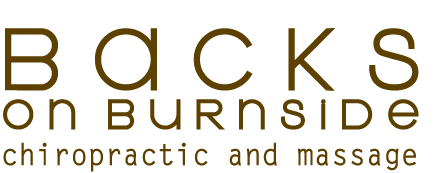Most of us have experienced it— waking up after a good night’s rest and, instead of leaping vibrantly out of bed, we creak to a slow, stiff and somewhat crooked stand. As we drink our coffee to the tune of a ‘Celebrex’ commercial and recall our parents complaining of joint pain, we can’t help but to wonder: “Could I have arthritis?”
Osteoarthritis: Simply put, arthritis is inflammation of one or more joints. The most common type, called osteoarthritis (OA), involves the progressive destruction of the cartilage within a joint.
The result is irritation and inflammation at the joint, a decrease in the joint space, and increased wear on the bone beneath the cartilage. This process may occur after an injury (traumatic or overuse), or as part of the aging process. The most common sites of involvement are the weight bearing joints of the spine, hips and knees, and some of the small joints of the hands.
Disuse: Similar stiffness can occur due to disuse of the stabilizing muscles of the spine and other joints. Many of us tend to be weekend warriors. We spend our work week sitting at our desks followed by weekends spent gardening, doing housework, running with the kids and other forms of activity. By Monday we wake up with a stiff back, neck or shoulder. This pattern is often the result of deconditioned muscles.
Stiffness is a symptom, NOT a diagnosis
If you think you may have arthritis, a thorough examination of the musculoskeletal system, which may include x-rays or lab work, is important. Although there is no cure, research has shown that much of the discomfort of OA can be reduced with low impact exercise (walking, swimming) and nutrition.
Those with OA can also benefit greatly from manipulation, massage, supplements, supports and incorporating exercise into your day:
Manipulation and helps slow further degeneration.
Massage reduces the muscle spasms that occur in response to joint irritation, thereby easing joint stress caused by muscle tension.
Supplements such as Glucosamine sulfate and MSM have been shown to be effective in reducing pain and aiding in the healing of degenerated cartilage. For the times when we do “overdo it,” Proteolytic Enzymes, Fish Oils (EPA and DHA), and preparations containing Boswellia and Curcumin all have strong anti-inflammatory effects. Compared to these supplements, anti-inflammatories such as ibuprofen and ASA have been shown to be less effective in the long term relief of pain associated with OA, can have serious side effects, and may actually slow down or prevent the healing of damaged cartilage
Supports such as lumbar cushions and cervical pillows, as well as a supportive mattress can all help take stress off the spine when sitting or sleeping.
Incorporating exercise into our day, including therapeutic stretches, gym ball exercises and core stabilization exercises, is central in both managing the symptoms of OA and in strengthening stabilizing muscles. Since weakness of the supporting muscles increases the stress on the joint and makes us more prone to injury—both of which increase the risk of developing OA—a few targeted exercises can go a long way.

